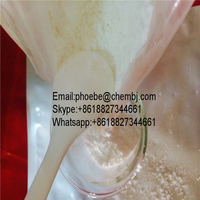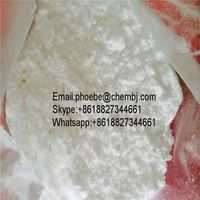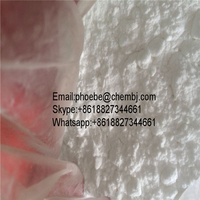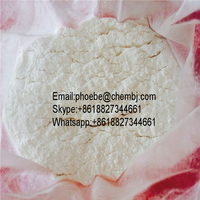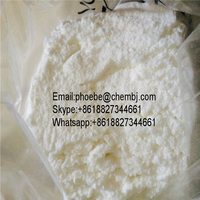Axitinib
Specifications
中文名称: 阿西替尼
中文同义词: 阿西替尼;N-甲基-2-((3-((1E)-2-(吡啶-2-基)乙烯)-1H-吲唑-6-基)硫)苯甲酰胺;AXI锡IB;苯甲酰胺, N-甲基-2-[[3-[(1E)-2-(2-吡啶
基)乙烯基]-1H-吲唑-6-基]硫基]-;10MG/50MG/100G;阿西替尼杂质;阿西替尼原料(319460-85-0);阿西替尼标准品
英文名称: Axitinib
英文同义词: AXITINIB;Benzamide, N-methyl-2-[[3-[(1E)-2-(2-pyridinyl)ethenyl]-1H-indazol-6-yl]thio]-;N-METHYL-2-{[3-((E)-2-PYRIDIN-
2-YLVINYL)-1H-INDAZOL-6-YL]SULFANYL}BENZAMIDE;N-Methyl-2-((3-((1E)-2-(pyridin-2-yl)ethenyl)-1H-indazol-6-yl)sulfanyl)
benzamide;AVERMECTINB;Axitinib for research;AG 013736;N-Methyl-2-[[3-[(1E)-2-(2-pyridinyl)ethenyl]-1H-indazol-6-yl]thio]benzamide
CAS号: 319460-85-0
分子式: C22H18N4OS
分子量: 386.47
相关类别: All Inhibitors;Inhibitors;Intermediates & Fine Chemicals;Pharmaceuticals;Protein Kinase Inhibitors and Activators;科研试
剂;Pfizer compounds;信号转导通路激酶抑制剂;抗肿瘤原料药;原料药;原料药中间体;API;AG 013736;医药中间体;抗肿瘤类药物及免疫抑制剂;医药
原料;阿西替尼API;抗癌类
熔点 213-215°C
储存条件 -20°C Freezer
美国FDA批准阿西替尼用于治疗晚期肾癌 2012年1月27日,美国FDA批准Inlyta(axitinib,阿西替尼)治疗对其它药物没有应答的晚期肾癌(肾细胞
癌)。Inlyta由辉瑞公司生产并销售,为口服药丸,日服两次。
肾细胞癌是一类始发于肾小管内皮细胞的肿瘤。阿西替尼可阻止对肿瘤生长和转移起作用的某些被称为激酶的蛋白发挥作用。
阿西替尼是一种小分子酪氨酸激酶抑制剂,对多个靶点有效,包括VEGF受体1,2和3。
FDA药物评价和研究中心的血液学和肿瘤学药品办公室主任Richard Pazdur博士指出:“这是自2005年以来获准的第7种治疗转移性或晚期肾细胞癌的
药物。总的说来,这段时间药物开发的空前水平已大大改变了转移性肾细胞癌的治疗范式,并为患者提供了多种治疗选择。”
近年来被批准用于治疗肾癌的药物包括索拉非尼[sorafenib](2005),舒尼替尼[sunitinib](2006),西罗莫司[temsirolimus](2007),依维莫司
[everolimus](2009),贝伐单抗 [bevacizumab](2009)和帕唑帕尼[pazopanib] (2009)。
Axitinib
Axitinib CAS: 319460-85-0 /phoebe@chembj.com
Product Name: Axitinib
Synonyms: AXITINIB;Benzamide, N-methyl-2-[[3-[(1E)-2-(2-pyridinyl)ethenyl]-1H-indazol-6-yl]thio]-;N-METHYL-2-{[3-((E)-2-PYRIDIN-2-
YLVINYL)-1H-INDAZOL-6-YL]SULFANYL}BENZAMIDE;N-Methyl-2-((3-((1E)-2-(pyridin-2-yl)ethenyl)-1H-indazol-6-yl)sulfanyl)
benzamide;AVERMECTINB;Axitinib for research;AG 013736;N-Methyl-2-[[3-[(1E)-2-(2-pyridinyl)ethenyl]-1H-indazol-6-yl]thio]benzamide
CAS: 319460-85-0
MF: C22H18N4OS
MW: 386.47
Product Categories: All Inhibitors;Inhibitors;Intermediates & Fine Chemicals;Pharmaceuticals;Protein Kinase Inhibitors and
Activators;Pfizer compounds;API;AG 013736
mp 213-215°C
storage temp. -20°C Freezer
Chemical Properties Off-White Solid
Usage A tyrosine kinase inhibitor; used in cancer therapy.
Usage Axitinib (AG-013736) is a multi-target inhibitor of VEGFR1, VEGFR2, VEGFR3, PDGFRβ and c-Kit with IC50 of 0.1 nM, 0.2 nM,
0.1-0.3 nM, 1.6 nM and 1.7 nM, respectively.
Usage Axitinib is a multi-target inhibitor of VEGFR1, VEGFR2, VEGFR3, PDGFRβ and c-Kit with IC50 of 0.1 nM, 0.2 nM, 0.1-0.3 nM,
1.6 nM and 1.7 nM, respectively.
Usage Axitinib is a tyrosine kinase inhibitor. Axitinib is used in cancer therapy.
Product Description:
1.Axitinib is also called by its brand name Inlyta. It is a type of drug called a tyrosine kinase inhibitor, which is a cancer
growth blocker. It blocks certain proteins called tyrosine kinases from acting on cells. Tyrosine kinases signal to cancer cells to
grow.Axitinib blocks different types of tyrosine kinase and is called a multi kinase inhibitor. It stops cancer cells forming blood
vessels, which the cancer needs in order to grow. This is called anti angiogenesis treatment.Axitinib is a treatment for advanced
kidney cancer. You may also have it as part of a clinical trial for other cancers including soft tissue sarcoma and thyroid cancer.
2.Axitinib interferes with the growth of some cancer cells.Axitinib is used to treat advanced kidney cancer.Axitinib is usually
given after other cancer medicine has been tried without success.Axitinib may also be used for purposes not listed in this
medication guide.Axitinib dose-dependently inhibits tumor growth in MV522 with ED50 value of 8.8 mg/kg twice daily, based on the
relationship between dose and the corresponding TGI (tumor growth inhibition).
3.Axitinib is an oral tyrosine kinase inhibitor selective for vascular endothelial growth factor (VEGF) receptors -1, -2 and -3
that is used in the therapy of advanced renal cell carcinoma. Axitinib therapy is commonly associated with transient elevations in
serum aminotransferase that are generally mild and asymptomatic. Axitinib has yet to be linked to instances of clinically apparent
acute liver injury.
Applications:
1.Axitinib is indicated for kidney cancer. Axitinib is a kinase inhibitor shown to inhibit the vascular endothelial growth factor
receptors (VEGFR-1, VEGFR-2, and VEGFR-3) implicated in angiogenesis and tumor growth leading to cancer progression.Affygility
Solutions has an occupational exposure limit (OEL) and control band assignment for this active pharmaceutical ingredient (API).
This monograph also contains the acceptable daily exposure (ADE) value.
2.The AXIS trial was a phase 3 randomized trial that showed the efficacy of this drug. In this study it was showed that axitinib
may increase progression-free survival (PFS) compared to sorafenib in patients with metastatic renal cell carcinoma who previously
had failed to first-line therapy with sunitinib, bevacizumab plus interferon-alfa, temsirolimus, or cytokines. 389 patients (54%)
had received 1 prior sunitinib-based therapy, 251 patients (35%) had received 1 prior cytokine-based therapy (interleukin-2 or
interferon-alfa), 59 patients (8%) had received 1 prior bevacizumab-based therapy, and 24 patients (3%) had received 1 prior
temsirolimus-based therapy. The baseline demographic and disease characteristics were similar between the axitinib and sorafenib
groups with regard to age (median 61 years), gender (72% male), race (75% white and 21% Asian), and Eastern Cooperative Oncology
Group (ECOG) performance status (55% 0, 45% 1), and histology (99% clear cell)
3.In this study they recruited 723 patients (median age 61 years) with metastatic renal cell carcinoma; they were randomized (1:1)
without blinding to axitinib 5mg (N = 361) twice daily versus sorafenib 400mg (N = 362) twice daily; allocation concealment was not
done. All patients had renal clear-cell carcinoma that progressed despite first-line therapy with sunitinib, bevacizumab plus
interferon-alfa, temsirolimus, or cytokines. Increased Axitinib dose was allowed for patients without hypertension or adverse
reactions
4.Progression free survival (PFS) was defined as time from randomization to either first documentation of disease progression (per
independent blinded radiology review of images) or death due to any cause. The median duration of axitinib therapy was 6.4 months
and sorafenib therapy was 5 months. Disease progression or relapse occurred in 160 patients (44%) in axitinib group and 180
patients (50%) in sorafenib group. There was a statistically significant advantage for axitinib over sorafenib for the endpoint of
PFS. There was no statistically significant difference between the arms in OS. Comparing axitinib versus sorafenib in intention-to
-treat analysis, the PFS was 6.7 months in the axitinib group versus 4.7 months in the sunitinib group; hazard ratio was 0.665 (95%
CI 0.544-0.812); one-sided P < 0.0001, and the objective tumor response was 19% versus 9% respectively (P = 0.0001, NNT 10)
Note:
If you are intersted in our products, please contact us !
Email:phoebe@chembj.com
Skype:+8618827344661
Phone(whatsapp):+8618827344661
- Country: China (Mainland)
- Business Type: Manufacturer
- Market: Global
- Founded Year: 2001
- Address: 496 Zhongshan Road,Wuhan
- Contact: Caroline Chen



